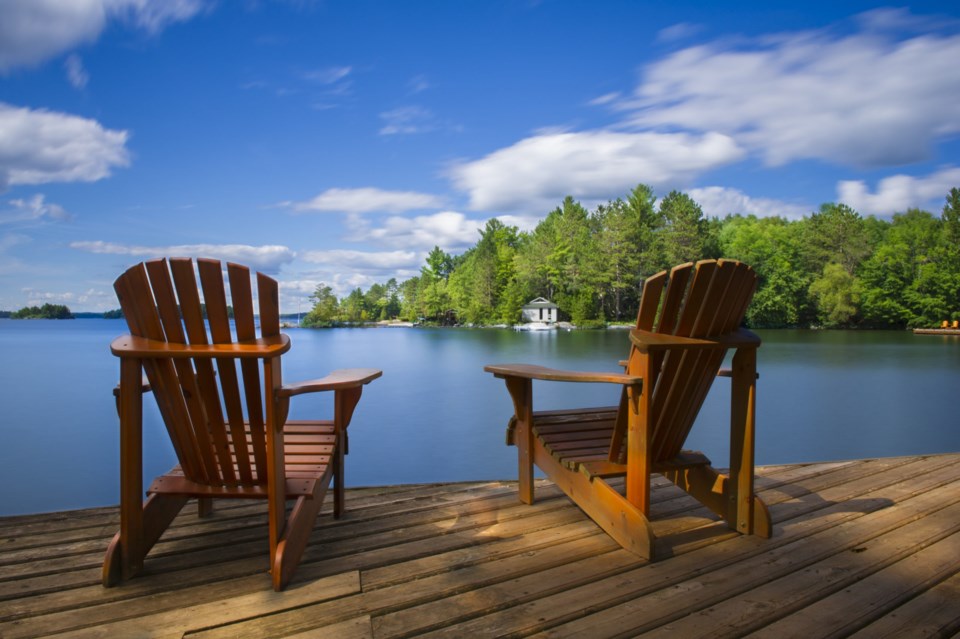Justin Trudeau has taken some flak for social media posts by his wife at the prime minister’s official summer residence in Harrington Lake. His defenders and detractors both have a point.
First, let's start with the Trudeaus. The cottage in question is hardly a far-flung remote destination. It’s only 25 kilometers from his official residence, and another 10 from downtown Ottawa. Not exactly a leisurely bike ride, perhaps, but hardly the outer edge of civilization. Many Canadians have daily commutes that long – and actually, it’s not unknown for prime ministers to do just that.
The risk to remote communities (and “remote” ones like the Gatineau hills) isn’t from the drive itself, but depleting local services, infecting the residents – and, worst case, taking up space in much-smaller local healthcare facilities.
Again, these don’t really apply. Harrington Lake isn’t a “community” in any meaningful sense; there isn’t any public access, much less a town or village.
It’s also unlikely that he or his wife are popping into the local grocery for fresh bread, veggies, or toilet paper. There’s every reason to expect the Trudeaus brought or had supplies delivered by staff.
In short: it’s not a remote community, there’s no drain on local services, and the Trudeaus were essentially almost hermetically sealed in a lakefront cottage with (probably) next to no contact with strangers – not something you can say about Ottawa, or even suburban Ottawa.
Here’s the problem: that’s not the point.
On a long weekend where Canadians were implored to stay home, parks were closed even for socially-distant walks, and the message is collective (in)action and collective sacrifice...well, you can see why family weekend pics in the forbidden outdoors rubbed many the wrong way.
More than anything else, it undermines the message to stay home.
In the same way it was hard to swallow celebrities warbling “imagine there’s no possessions” from multimillion dollar Southern California homes, health officials imploring everyone – yes, you in the 400-square foot apartment with no balcony – to stay home is tougher to swallow when you know the prime minister and his family are fishing, kayaking, and might even (dare one even utter aloud this dream?) have a room all to himself.
If we all need to stay home, we all need to stay home. And in BC at least, we know that includes second homes, because of this past long weekend.
Over the Easter break, BC Ferries traffic was down an astonishing 92% from the year before. (That’s almost hard to fathom.) And yet, those who did travel attracted a firestorm of panic, shaming, and hand-wringing.
As Dr. Bonnie Henry has pointed out, people shouldn’t rush to judge those they know nothing about. There are plenty of legitimate reasons for travel, including work, study, delivery, and more. But leaving those aside, consider a hypothetical example: a Vancouver or Victoria family with access to a second home on the Gulf Islands. (Some of the islands’ population can more than triple in the summer; it’s not all tourists.)
Assuming they drive in gassed up and fully supplied – not difficult for a long weekend –stay in their car during the sailing, and remain in the island house/property over the weekend…it’s hard to see who they’re endangering. And with local parks closed with no respite in sight, you can imagine the overwhelming temptation – especially knowing it’s (probably) safe.
But just like the Trudeaus, that’s not really the point. The fear from Gulf Island residents was real, and so is the risk of a slippery slope. If we all need to set an example, it shouldn’t be too much to expect our leaders to do the same.
Maclean Kay is Editor-in-Chief of The Orca
SWIM ON:
- Maclean Kay last wrote about the long, winding road to economic recovery after the pandemic subsides.
- Why is the generation most vulnerable to COVID-19 (seemingly) the most likely to flout measures to contain it? Jody Vance ponders.
- Don't miss The Orca's COVID-19 blog.



